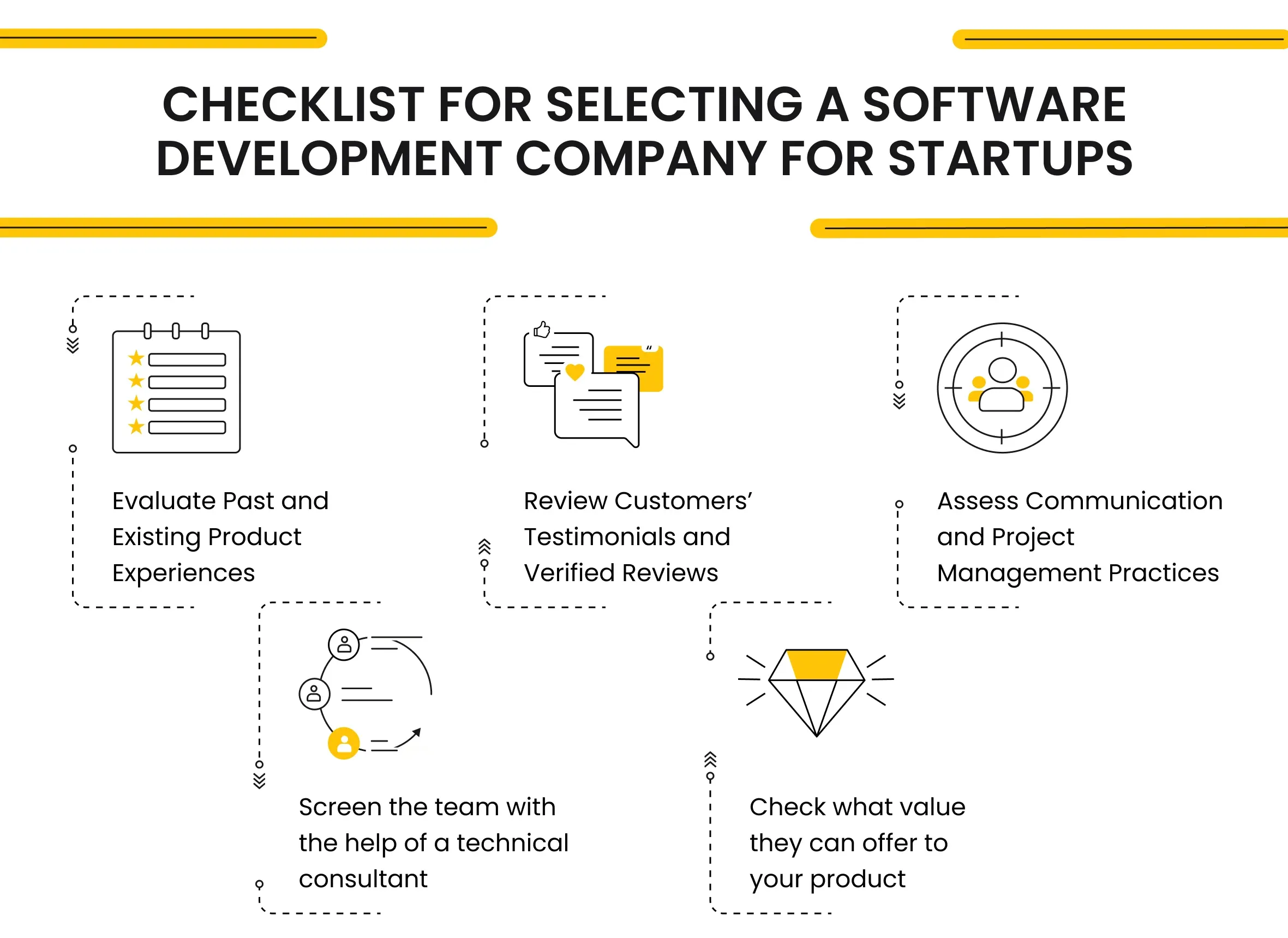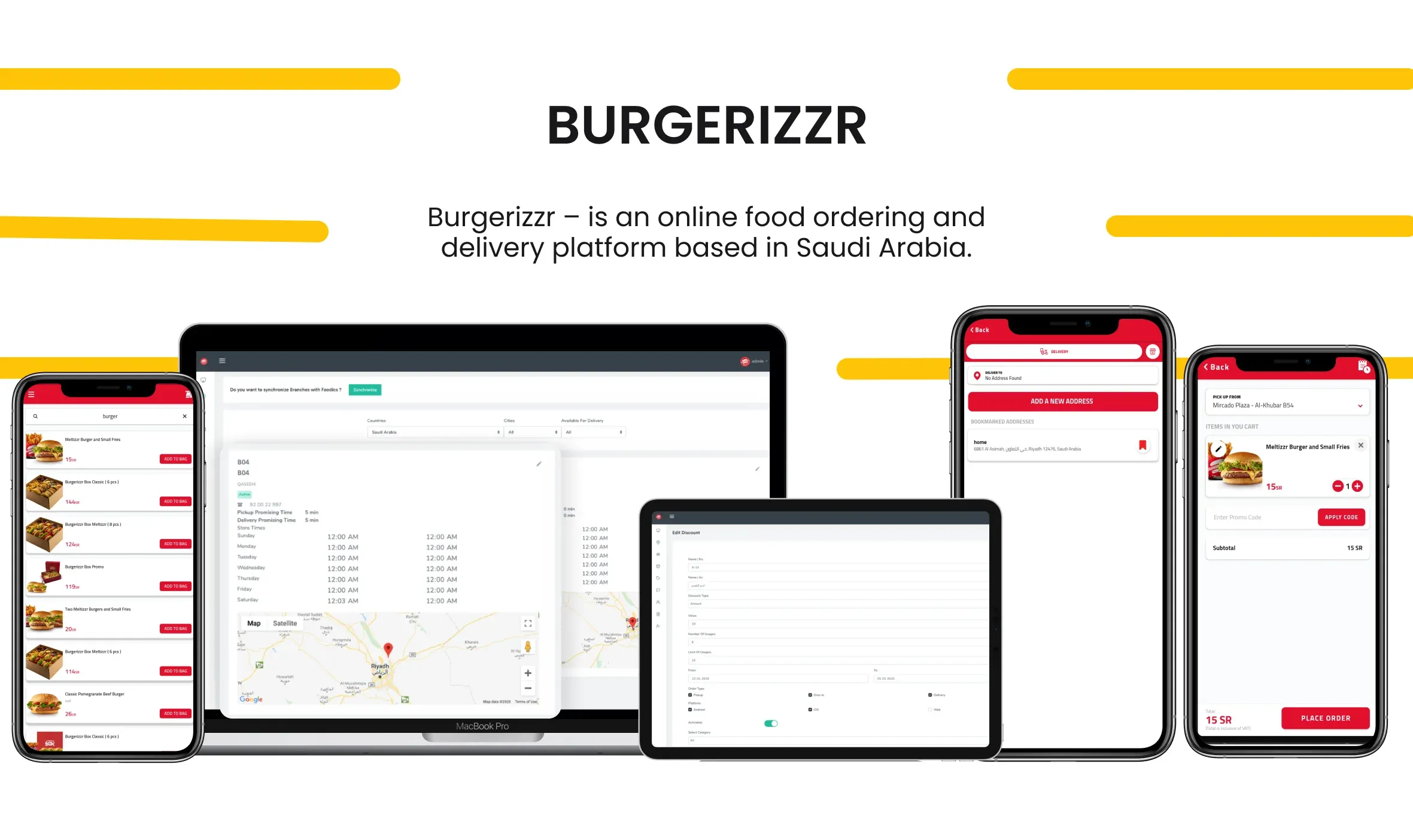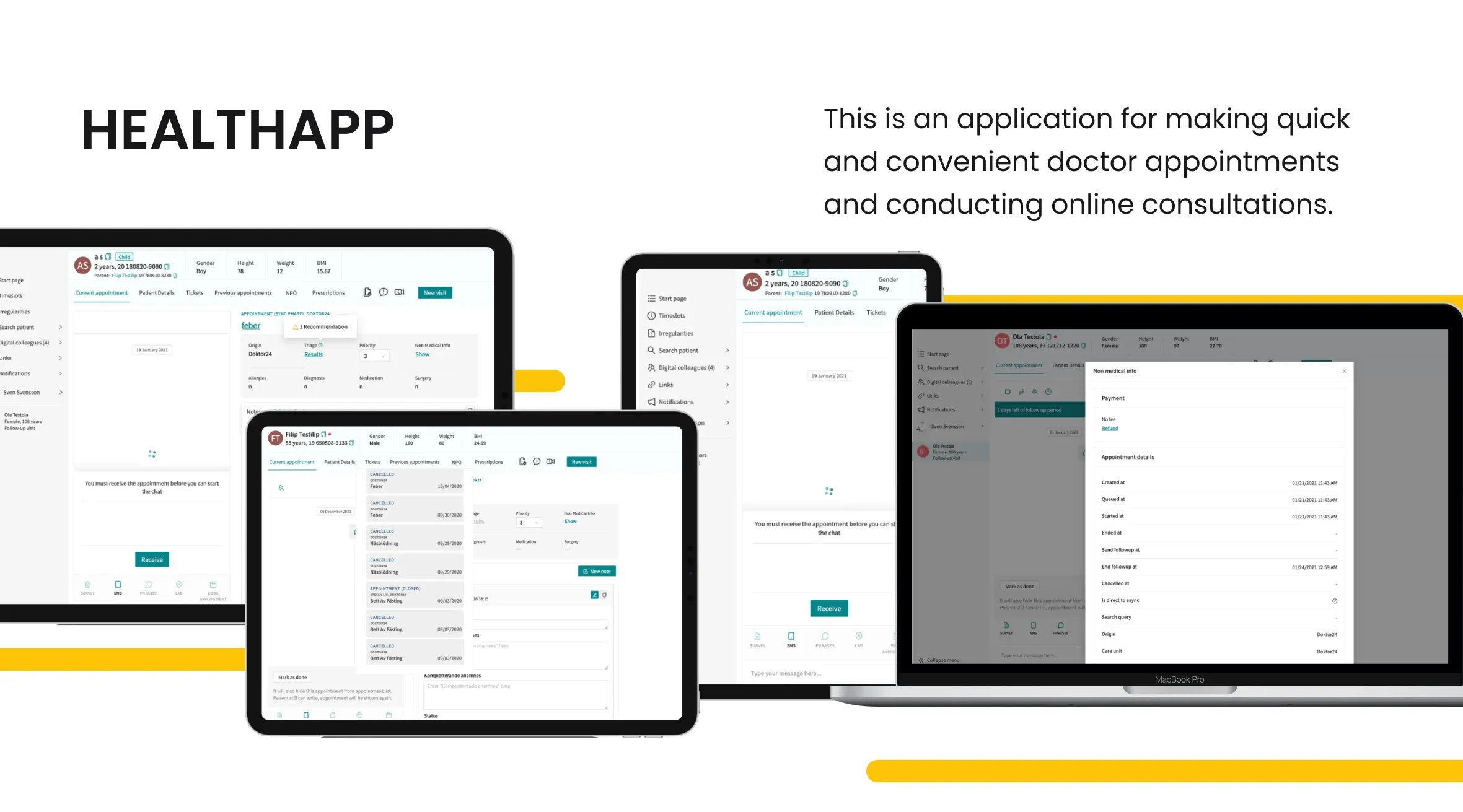Choosing Software Product Development Company for Startups in 2024: Complete Guide
October 30, 2024 • 167 Views • 23 min read
Bohdan Vasylkiv
CEO & Co-Founder
Outsourcing custom software product development on demand is a popular solution among modern startups and small companies. The easiest and most efficient way to create a specific software product is to cooperate with a software product development company for startups.
Nevertheless, how do you find a reliable technology partner in 2024? What should you pay attention to, and what else must you know before initiating a startup software development?
To answer these questions, we created this guide on choosing a software development company for startups in 2024.
About Software Product Development Companies for Startups
First of all, let’s briefly talk about software development companies.
Long story short, such companies offer their development teams and tech expertise as a service, providing their clients with various software solutions. Nevertheless, each software product development company for startups can offer different cooperation terms, such as:
- Outsourced software product development on demand (End-to-end development)
- Team extension services to enhance the in-house team
- Dedicated development teams to cover specific development processes
- Tech-related services like DevOps, IT consulting, Quality assurance and testing, etc.
Each type of service is designed for specific tasks and business needs. Nevertheless, advice on how to choose the right software development partner is the same for all of them, with just a few minor differences.
Key Considerations When Choosing a Software Development Company for Startups

When you are looking for a custom software development company for startups, you should pay attention to its:
- Experience in Startup Ecosystem
- Technical Expertise
- Customization and Flexibility
- Engagement models
- Speed and Scalability
- Contract Clarity
Experience in Startup Ecosystem
First, while choosing a software development company for startups, you should examine its tech experience and expertise.
Yet, in addition to ensuring that your future technological partners have rich software development experience, you should also consider their experience in startup development. Unlike traditional software projects, startups require a gradual approach and capabilities to work in strict and narrow terms, commonly with limited development time and resources.
Undeniably, startup software product development is a much more stressful process, where everything counts and is at stake. Thus, the more successful startups your tech partners have behind - the better candidates they are.
Besides, such experience will be an excellent advantage for your project, bringing unique and efficient solutions.
Technical Expertise
Startup development experience is an undeniable advantage. Nevertheless, a custom software development company for startups should also have technical expertise. Being part of the startup industry is insufficient to become an excellent candidate for all projects.
When talking about tech expertise, we are talking about niche experience. Each software company has a certain level of software skills. Nevertheless, it is essential to ensure that your potential technical partner has technical expertise in your business sphere, such as eCommerce, FinTech, Healthcare, etc.
When you hire a software product development company for startups familiar with the specifics of your industry, you increase your chances of success. You can also get valuable insights from the field, creating a more competitive software app.
Customization and Flexibility
Another essential aspect to consider is the team's flexibility and customization skills.
A custom software development company for startups must offer personalized and efficient development approaches to the software projects it is engaged in. Still, evaluating software customization and flexibility is a challenging task. It becomes apparent mainly during development.
Nonetheless, you can create an opinion on such skills at the planning stage by properly interviewing your candidates. The best way to interview developers about their customization and flexibility is to give them technical tasks that demand these skills or change them on the go.
Alternatively, ask them for advice on improving certain project aspects, paying attention to their recommendations, and evaluating their efficiency.
Engagement Models
Choosing a software development company for startups involves defining your communication and cooperation methods or engagement models.

Among the most common engagement models for software development teams, there are:
- Team extension, which is basically about engaging a few niche experts to cover some tasks and processes
- Outsourced dedicated teams that assume cooperating with offshore developers purely online.
- In-house team gathering can be performed independently, or you can find a reliable software partner to provide your business with the required specialists.
Apart from this, engagement models are divided by the terms of resource use. To make it simple, two most basic and well-spread tactics:
- Time and materials agreement: when developers are familiar with the project scope and constantly discuss various challenges or opportunities during development, they have a chance to redirect resources or change priorities on the go and are paid for working hours.
- Fixed-price contract: Before initiating the development, both parties agree on the scope and product functionality to deliver, estimate the costs of the planned project, and adhere to the plan. This approach is much less flexible, requiring the creation of supplemental agreements in case of unplanned changes or new challenges.
To cut a long story short, a time and materials agreement is a highly flexible and customized approach, which can constantly shape and change depending on the business needs and requirements. It is ideal for quality-first projects with loose deadlines when the main goal is creating an efficient and high-quality software product.
At the same time, fixed-price contracts are an excellent choice for projects with strict deadlines and roadmaps prioritizing software implementation on agreed-upon terms. This doesn’t mean that such projects are poor quality, yet they have less flexibility in implementing changes or updates on the go, leaving insufficient errors or bugs for later.
Speed and Scalability
Regardless of the chosen engagement model, you should ensure your candidates meet the deadlines and software complexity. To simplify it, pay attention to their development speed and team scalability options:
Can your partner scale its team if needed? Can your tech team deliver the demanded results faster?
The best method to evaluate these metrics is to contact candidate companies and ask them for a rough estimation of the demanded project. Additionally, you should pay attention to previous case studies, find tasks similar to yours of earlier projects, and prepare interview questions before the interview.
Contract Clarity
Finally, contract clarity is also an essential factor. However, its clarity can be seen already before signing the agreements.
While considering your future software product development company for startup development, you should pay attention to three significant points of the contract:
- Missed deadlines
- Billing and rates
- Project scope and milestones
Your agreement must clarify when deadlines can’t be met and what must be done in such scenarios. The contract should include information about the development billing and rates, explaining what you are paying for and how much. Of course, both parties should be aware of the project scope and milestones, which are designed and planned in the road map.
Red Flags When Choosing a Software Product Development Company

A guide on how to choose a custom software development partner can’t consist only of positive aspects of future cooperation. In fact, apart from valuing the positive aspects of contractors, you should also pay attention to the red flags of potential candidates. This helps to avoid risks and save time and resources by skipping unreliable options.
A core list of red flags of software product development company for startups includes:
- Outdated website with broken links
- No details about the staff and previous projects
- Negative reviews or complaints
- Lack of a detailed proposal
- Unrealistic promises and timelines
- Poor communication or collaboration
Outdated Website with Broken Links
Finding a reliable software vendor for startups requires extensive research. One crucial aspect of such research is examining a software company's website.
So, while you are here, you should pay attention to metrics such as website performance, update rate, etc. When combined, all these metrics should create a seamless user experience while browsing.
Additionally, you can check their blog to see the update rates and publishing dates. A poorly managed website is an apparent red flag for future cooperation.
No Details about the Staff or Previous Projects
Another warning is the lack of information about the company’s team and previous projects.
Frankly, these are less concerning than the rest of the list, but they are still worth some attention and questioning. For instance, it can be a new-born company eager to gain experience. However, if a company still can’t explain such blind spots during the interview or recommends itself as a field expert, having no proven expertise - you should be worried.
The information about the staff helps you to:
- Understand if there is an actual team or if the company wants to look for developers during the planning stage
- Learn about the experience of offered software developers
- Learn about previous cooperations with the company
Negative Reviews or Complaints
People will only publish positive reviews on their own websites.
Fortunately, there are many b2b platforms like Clutch or GoodFirms and their alternatives, where you can find unbiased data about future contractors. Thus, during your research, you should pay equal attention to different independent services to create a more accurate profile of future tech partners.
The more negative reviews and complaints a company has, the worse candidate it is.
Lack of a Detailed Proposal
Another factor to consider is the vendor’s proposal.
Ideally, it should be as detailed and clear, as possible, describing and explaining all aspects it can. Otherwise, if a development company can’t provide you with a detailed explanation of its services and offers - you should avoid cooperating with it. At least, until it provides you with the required info.
Unrealistic Promises and Timelines
Even a detailed proposal might be a red flag, if it offers shady or unrealistic promises.
Still, evaluating such probability is a challenging task. Among the best practises for dealing with it is to:
- Choose a CTO consulting for analyzing the proposal and its credibility
- Compare the offer with the alternatives from other candidates
Of course, if you have competent experts on board, you can avoid the foregoing and ask them to evaluate such terms. Yet, judging from our experience, many startups lack required skills and experience in evaluating the proposals.
Poor Communication and Collaboration
Final factor to take into account is the speed and quality of communication with your candidate.
From the first contact with potential software product development company for startups track their responsiveness and clearity of communication. If your candidates are irresponsible during pre-development collaboration, the chances of successful cooperation during the software development are low as well.
Checklist for Selecting a Software Product Development Company for Startups

Finally, the most basic checklist for selecting a development company for startups shares most steps from any guide on software product development for startups:
- Evaluate Past Experiences and Request Access to Existing Products
- Review Testimonials and Verified Reviews
- Assess Communication and Project Management Practices
- Screen the team with the help of a technical consultant
- Check what value they can offer to your product
When you have a list of possible software candidates, you can proceed to this checklist to choose the best offer and most reliable partner.
Evaluate Past Experience and Request Access to Existing Products
First, you should learn more about your future team's experience. The best way to do so is to examine its previous experience in software development and its results.
Apart from examining case studies or reading reviews on third-party platforms, you can request detailed presentations or access to some of the created software products. Alternatively, you can browse non-NDA products to test the final results of the developed software.
Therefore, you will better understand who you are dealing with.
Review Testimonials and Verified Reviews
Clearly, the best way to learn about your candidates and their reliability is to listen to their previous clients.
Once again, the best way to find them is to check special b2b platforms, where you can find all reviews. To go even further, you can contact some of the previous clients directly, asking for more profound feedback and detailed reviews with all the pros and cons of cooperating with certain software development companies for startups.
As a result, you can get even better insights into cooperating with your candidates for tech partnerships.
Assess Communication and Project Management Practices
When interviewing your future partners, ask them about their best practices in communication and management.
You should expect a detailed report on how they establish communication and tend to manage various development processes. Additionally, we recommend asking about their latest challenges, how they dealt with them, whether they successfully overcame struggles, and why.
Screen the Team with the Help of a Technical Consultant
Again, you can benefit significantly from using third-party IT consulting services when choosing software developers.
Involving third parties will require extra spending but offer a more appropriate approach to finding a reliable software company. Unbiased expertise helps to properly evaluate tech expertise and other software-related aspects, ensuring the success of finding a trustworthy partner.
Such services are especially beneficial for companies with limited software expertise, which is typical in the startup field. Besides, you don’t need a full-fledged software consultant during the development: it would be enough to use their service while looking for a reliable team.
Check what Value They Can Offer to Your Product
Eventually, don’t forget about the additional value that teams can bring. This is an optional choice: the team's software expertise is the most important aspect to include.
Nevertheless, suppose you have a few relatively the same candidates. In that case, consider their experience in other fields, like familiarity with your business industry or more successful startup development cases.
As a result, you can gain additional advantages and a better understanding of other processes to deal with during software development and after delivery.
Why Choose Incora as Your Software Development Company for Startups
Eventually, let's consider Incora to illustrate what an ideal custom software development company for startups looks like.

Incora’s Clutch Profile
Incora’s profile on Clutch is rated five stars based on 22 independent reviews. Judging from a portfolio, the Incora team primarily engages in end-to-end custom software development, mostly working with midmarket businesses and enterprises. Still, around 15% of the clients are small businesses and startups.
The lack of cooperation with startups is compensated by a rich experience in a few niches, especially FinTech, Healthcare, and EdTech.
Most reviews are signed, and case studies are open, allowing potential clients to review existing apps or contact previous tech partners for details.
Incora’s Case Studies

We can highlight EasierChef, Burgerizzr, and HealthApp as examples of recent cooperation with small businesses and startups.

All of the applications required dedication and the completion of complex tasks. While Burgerizzr and HealthApp were developed from scratch, EasierChef required solutions for application scaling.

Apart from meeting our clients' demands and fulfilling their tasks, our software team advised some clients on upgrading their IT infrastructure (EasierChef). Finally, dedicated software developers from Incora shared some insights and advised clients about further scaling, explaining future challenges and how to overcome them.
What’s your impression after reading this?
Love it!
1
Valuable
1
Exciting
1
Unsatisfied
1
FAQ
Let us address your doubts and clarify key points from the article for better understanding.
What factors should startups consider when choosing a software development company in 2024?
Startups should consider a company’s technical expertise, industry experience, communication style, flexibility, technology stack, project management approach, and pricing structure. These factors ensure alignment with the startup’s goals and budget.
How can I assess the technical skills of a software development company?
Review the company’s portfolio, look for case studies, check client testimonials, and ask for developer profiles. You can also ask about their experience with specific technologies and frameworks that align with your product needs.
What’s the best way to evaluate a company’s experience with startups?
Look for companies that have worked with early-stage businesses, as they often understand the unique challenges startups face. Case studies, startup-focused services, and familiarity with agile methodologies can be indicators of experience with startup projects.
Are there risks in outsourcing software development, and how can they be mitigated?
Risks include miscommunication, quality control issues, and timeline delays. Mitigate these by setting clear expectations, choosing a reputable company, using contractual agreements, and keeping close communication throughout the project.
What are red flags to watch for when evaluating software development companies?
Be cautious of companies with vague pricing, lack of transparency, minimal client references, limited experience, or unprofessional communication. These can indicate potential challenges in collaboration and project success.
Is post-launch support necessary, and do companies offer it?
Post-launch support is essential for updates, bug fixes, and performance optimization. Many companies offer post-launch maintenance services, so inquire about this during the selection process to ensure your product’s long-term stability.
YOU MAY ALSO LIKE
Let’s talk!
This site uses cookies to improve your user experience. Read our Privacy Policy
Accept
Share this article